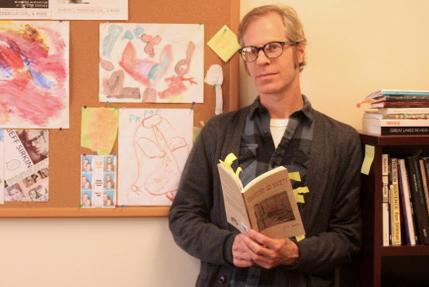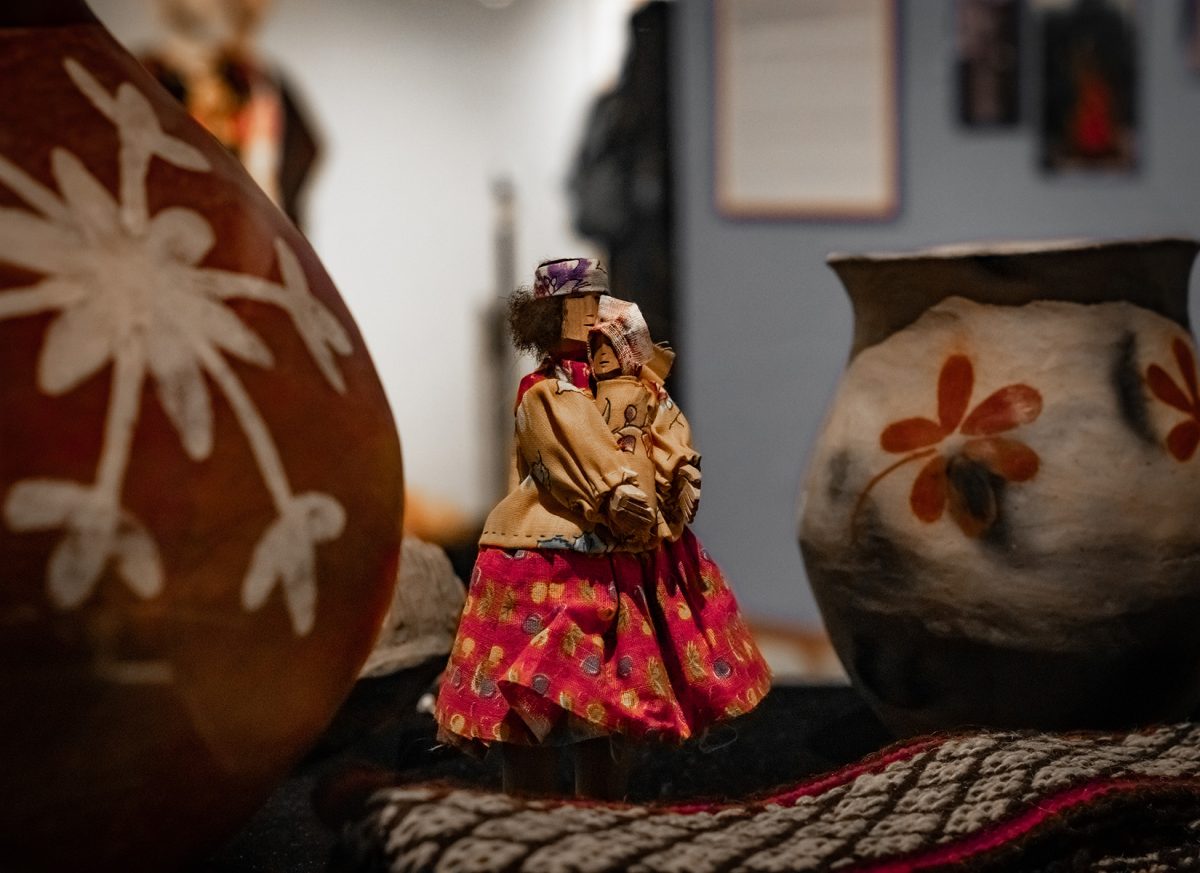On Nov. 18, creative writing professor Jeff Sirkin read from his latest collection of poetry, “Travelers Aid Society,” to a packed room of students, faculty and fans of his work. In his book, Sirkin questions the meaning of freedom and the complexity of home. Through research and various trips to his hometown of Cincinnati, Ohio, Sirkin took the “answers” and turned them into poetry.
Sirkin received his master’s degree from Miami University and his doctorate in literature from the University of Buffalo. Besides poetry, his focus of research has been 20th-century literature and culture.
“Travelers Aid Society” is divided into four chapters: Real Estate, Politics of the Mix Tape, The Ledger and Theories of Improvisation. This is not Sirkin’s latest work, some poems were written 10 years ago, but they were not ready to see the light of day. There are other poems that he wrote specifically for this collection about home, travel and freedom.
“(The book) is about a lot of things, on a basic level it is me thinking about my home and what home is,” Sirkin said. “Some poems in the book are inspired by my childhood home, but also by different travels: my trip to Europe, Mexico and different places in the United States, and through that thinking about what holds us in place and what freedom might mean.”
Sirkin wanted to know what are the things that hold us in place and what defines us and our way of thinking. His poems show how frail the concept of home is and how it stacks on top of reality. There are frames that at times matter so little.
“I don’t see home as imprisoning us, but I see home as being something that sort of defines a sense of the world to us. For instance, the way we divide land up into real estate, into little squares of property determines the way we understand land and determines, therefore, our relationship to that land,” Sirkin said. “We look at the mountain and we see the mountain. I look at the yard where I live now and I see my yard, but I have a hard time seeing it as the other things that it actually is which is part of this larger ecosystem, part of this geological history that I can’t even comprehend, part of a world that’s hard to comprehend.”
It is through poetry that Sirkin finds answers. Rather than write an essay or another thesis, he chooses to write poetry.
“I always tell my students that writing is a process of thinking and no idea that you have won’t get worse by writing through it.” Sirkin said.
As a young poet, Sirkin wrote about concepts in a conventional manner. It wasn’t until he started to mature that both his poetry and his process changed. He allowed poems to emerge on their own, he focused on the language and began to listen.
Sirkin said that “poetry is a process of listening.” His process morphed from the conventional way of notebook scribbling to looking at the world through newspaper clips, or what was on the radio and TV, and looking inside himself.
“A lot of my writing is built by collage. I’ll just think of little phrases and lines, or I’ll hear little bits of language and I’ll write those things down, and I don’t know what it is or how it connects,” Sirkin said. “Or I’ll be doing research and reading and something in it will strike me as interesting, and I’ll put it all on a page and none of it has anything to do with one another. And I start thinking of different ways that the phrases might combine or the ways I might construct a sentence. And I start seeing new formations. The poem sort of emerges from there.”
Sirkin’s poem “Orangutan Short-Circuits Wires, Builds Ladder to Flee Zoo in Adelaide Australia” is an actual story of an orangutan that made a brief disappearance from her enclosure.
“Our hero the orangutan/sits on the precipice asking herself no doubt/what freedom means/when the other side of the wall/as always is a parking lot.”
“Travelers Aid Society” helps not only to question our reality, but also to appreciate it. Some poems are funny, some are fun to read, some are about Cincinnati and Mexico, some poems even deal with economics. There is a wide array of exploration in this book. It’s a journey. And through all aspects, Sirkin wishes to reach many things.
“I would love for my poetry to be something around which communities could form. That’s kind of a self-centered way to think about it,” Sirkin said. “I want it to be part of a community.”
This way of writing poetry may seem scientific, theoretical instead of expressive, but there is a sense to it. Through research and reflection, Sirkin finds his voice. His poems are comfortable with the way in which they are conceived.
“In poetry, I allow myself the freedom of not thinking; I allow myself the freedom of imagination,” Sirkin said.
Despite the popular belief, new poetry transcends outdated language, and Jeff Sirkin, here at UTEP, is helping to prove that.
Andres Gallegos may be reached at [email protected].







